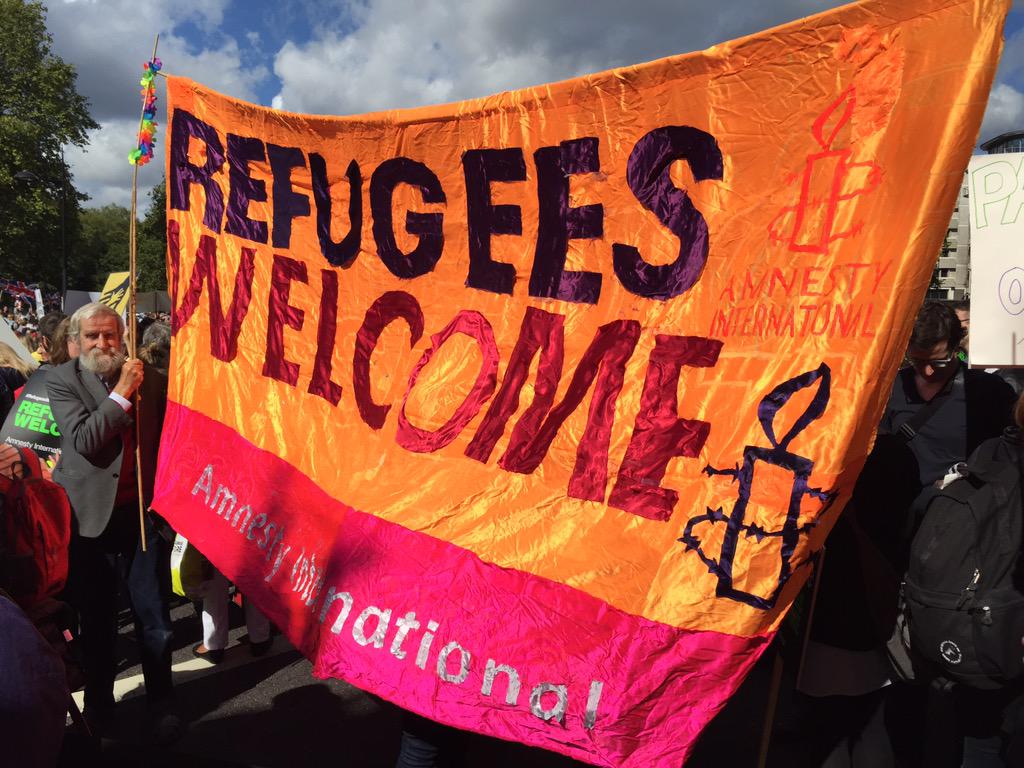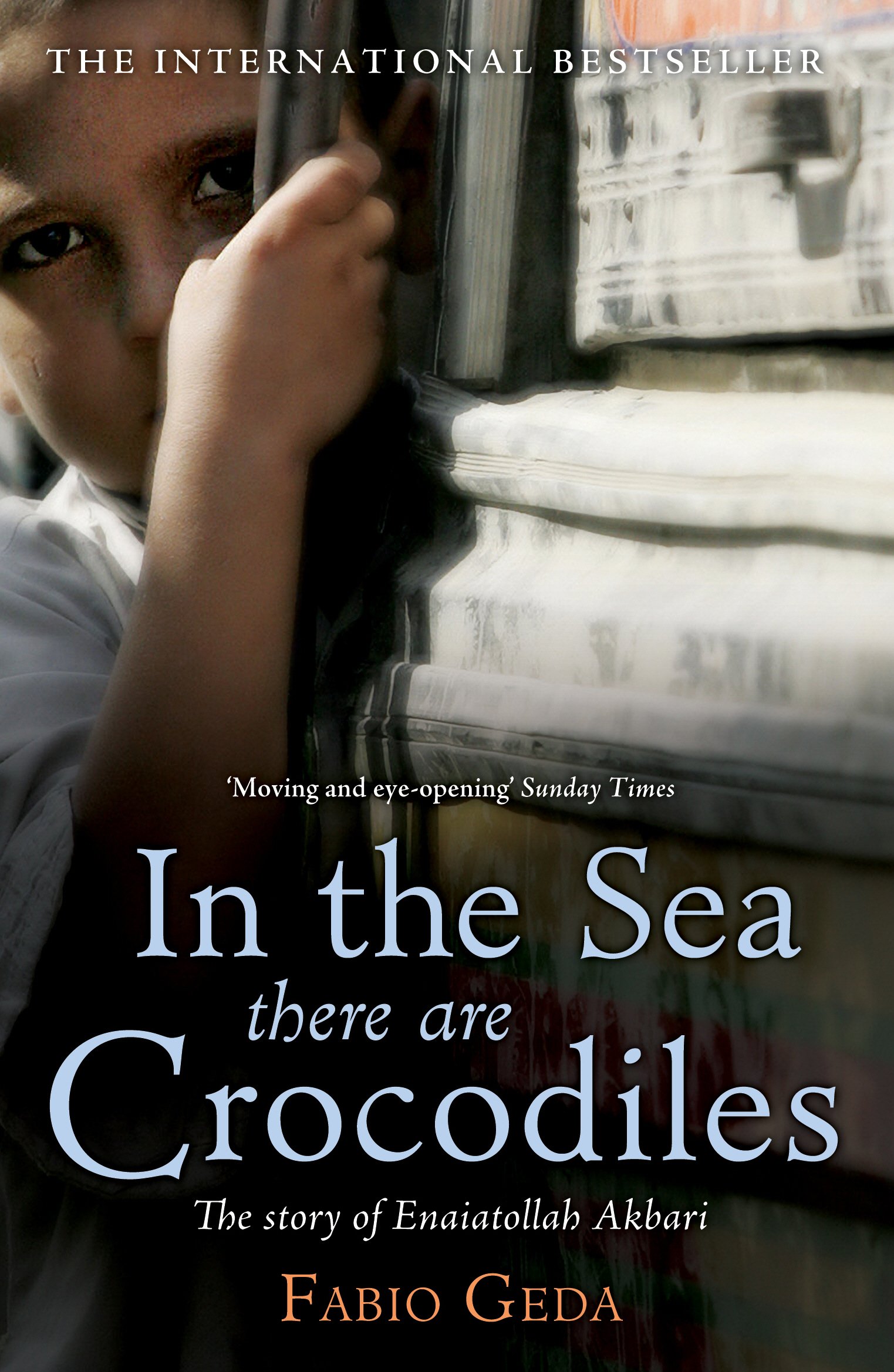Refugee Week – Great 2025 teaching resources to build empathy
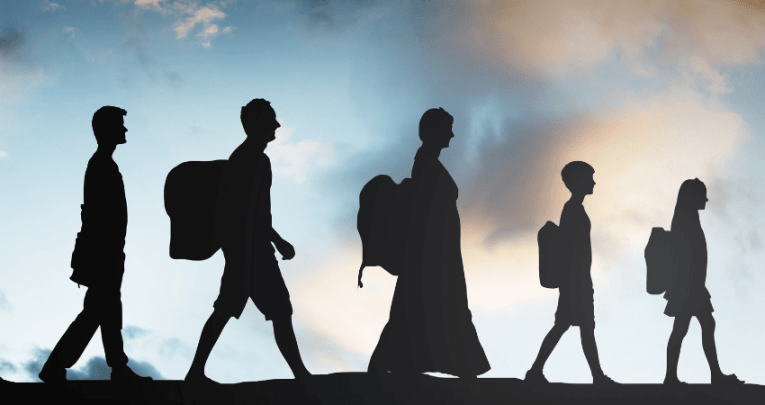
Use Refugee Week in June to celebrate refugees’ contributions to the UK and educate pupils about their plight…

- by Teachwire
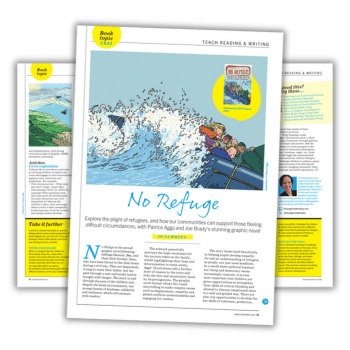
True inclusion starts with raising awareness. Use these resources during Refugee Week and beyond to help pupils become active citizens of positive change in your school and community.
Plus we’ve also got advice if you’ve got refugee children joining your classroom from teachers who have been there and done it…
Table of contents
What is Refugee Week?
Refugee Week takes place in the UK every year around World Refugee Day (20th June).
It’s a nationwide programme of arts, cultural and educational events that celebrate the contribution of refugees to the UK, and encourages a better understanding between communities.
It started in 1998, and its aims are to encourage a diverse range of events to be held throughout the UK, which facilitate positive encounters between refugees and the general public in order to encourage greater understanding and overcome hostility.
It’s a chance to showcase the talent and expertise that refugees bring with them to the UK and explore new and creative ways of addressing the relevant issues and reach beyond the refugee sector.
And, of course, it’s an important way of educating and raising awareness of the reality of refugee experiences.
There are loads of great ways your school can take part, no matter how big or small you want to go. There may be events near you, or you can create something in your school for students or the wider community.
When is Refugee Week 2026?
This year’s week takes place between 15th-21st June 2026. This year’s theme is “Courage.”
Refugee Week teaching resources
UKS2 book topic
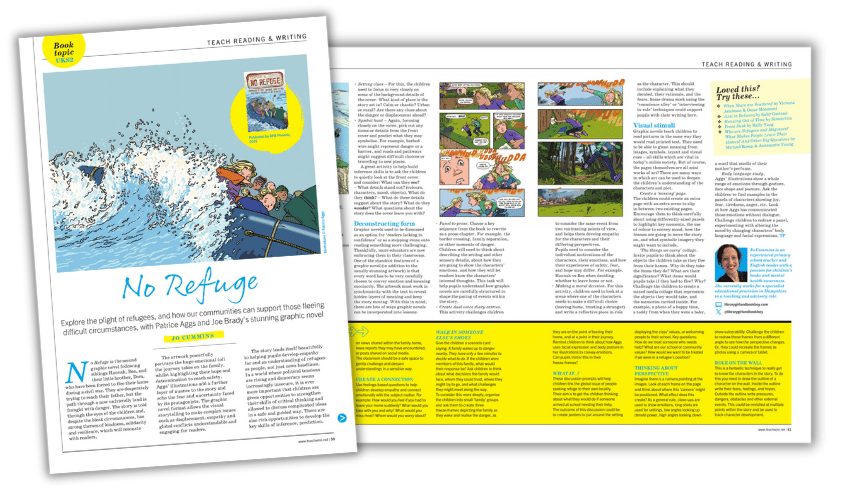
This UKS2 resource uses No Refuge – a powerful graphic novel about three siblings fleeing civil war – to help children explore the experiences of refugees with empathy and understanding.
Through cross-curricular activities linking to English, PSHE and global citizenship, it supports critical thinking, builds compassion and helps pupils see refugees as real people rather than headlines.
Use news reports to explore migration
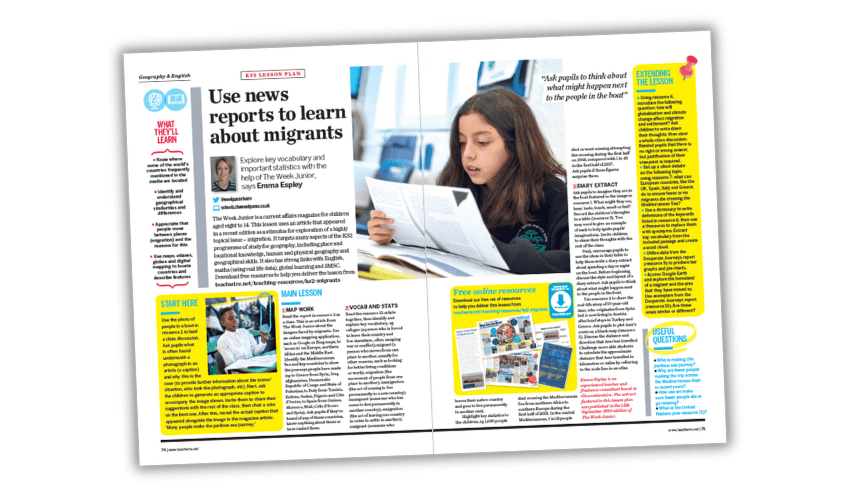
This KS2 migration lesson plan uses an article from The Week Junior as a stimulus for the exploration of this highly topical issue. The resources include a full lesson plan by Emma Espley, plus articles from The Week Junior, worksheets, statistics and PowerPoints.
World Refugee Day assembly and resources pack
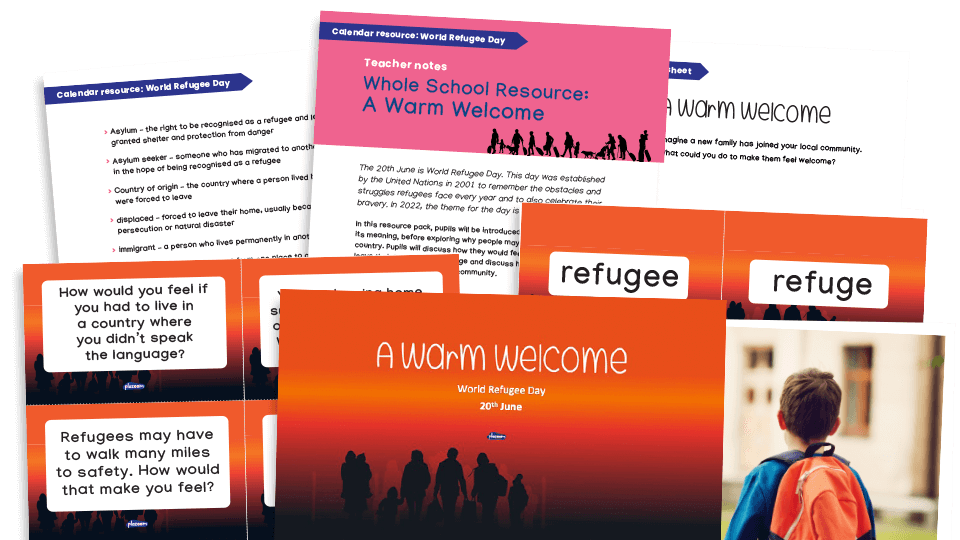
This resource pack from Plazoom will introduce children to the word ‘refugee’ and its meaning. You’ll then go on to explore why people might seek safety in a different country. Use the included assembly and activities to investigate this topic.
Refugee poem lesson plan
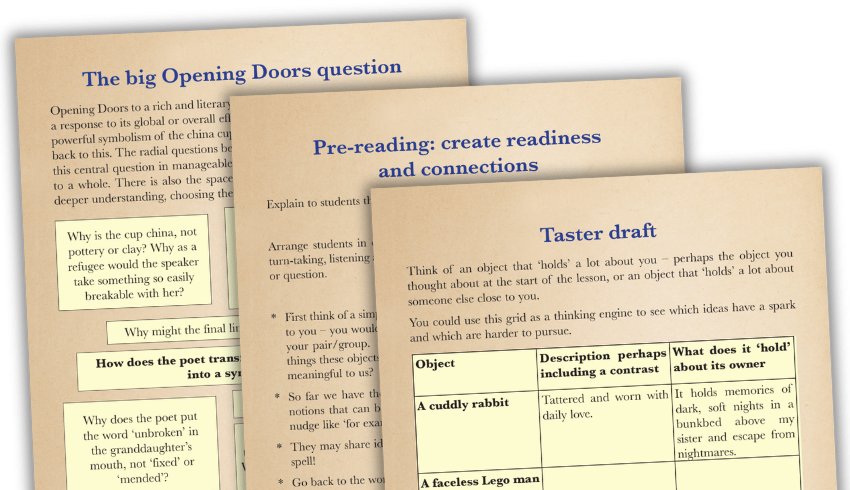
The refugee poem in this KS2 lesson plan offers a heartfelt portrayal of the effects of forced migration. Students will work towards a reading of the poem, focusing on the speaker’s changing mood. In doing so, they’ll learn how the poem transforms personal pain into a symbol of healing.
Kindertransport lesson plan
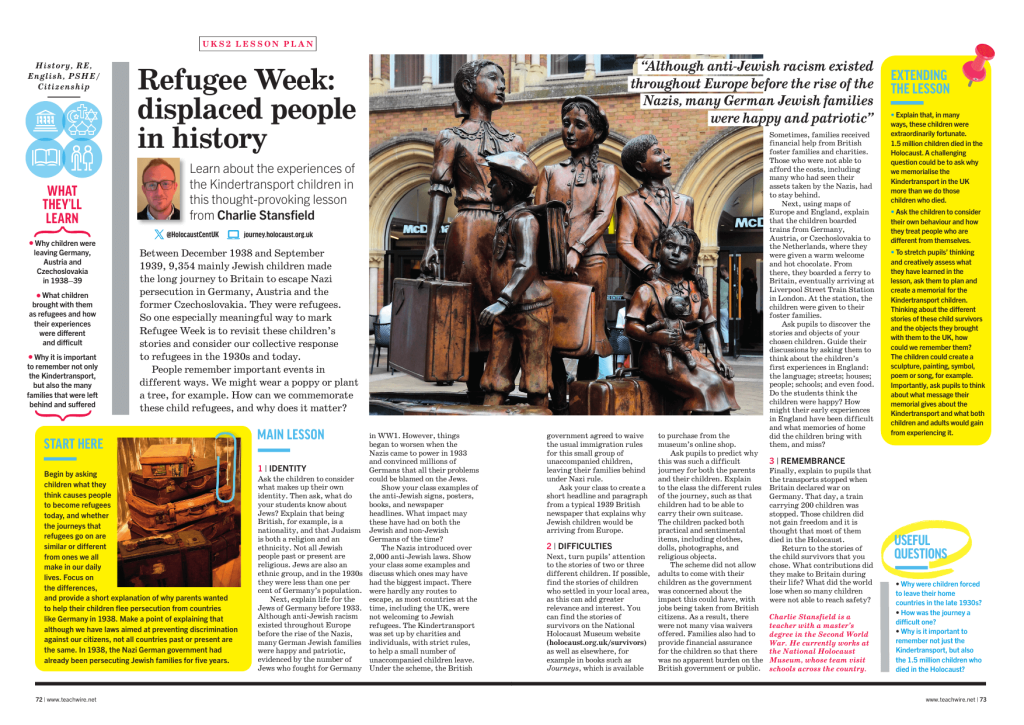
One especially meaningful way to mark Refugee Week is to revisit the stories of the Kindertransport children – mainly Jewish children who made the long journey to Britain to escape Nazi persecution. Explore how we can commemorate these child refugees, and why it matters.
KS2 wordless picturebook activities
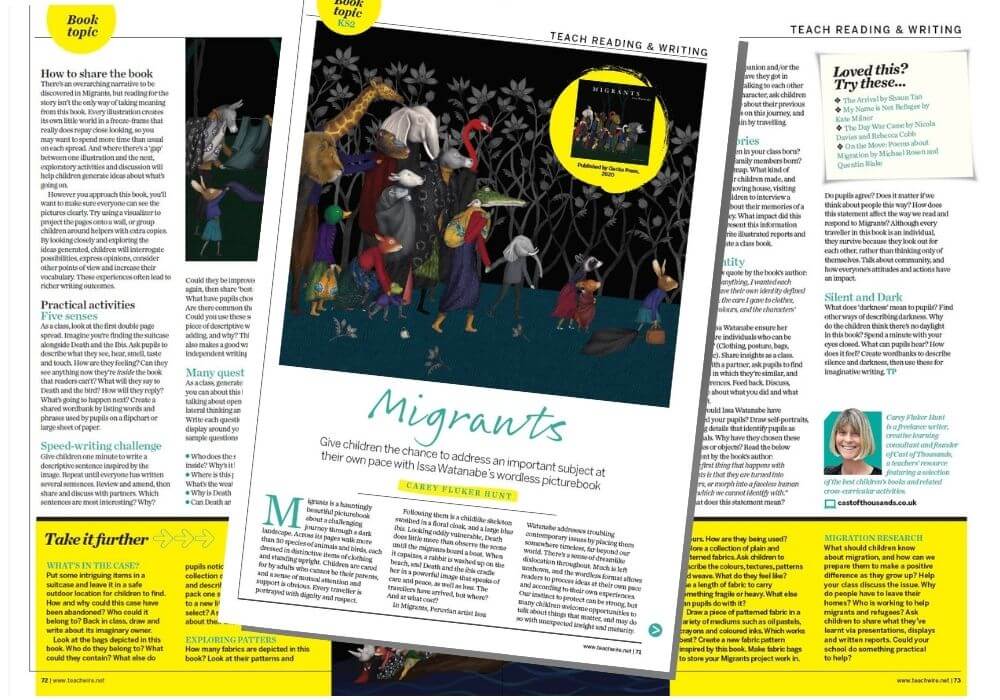
Give children the chance to address an important subject at their own pace with Issa Watanabe’s wordless picturebook, Migrants. This free download contains a wide range of KS2 activity ideas based around the book.
Refugee Week official resources
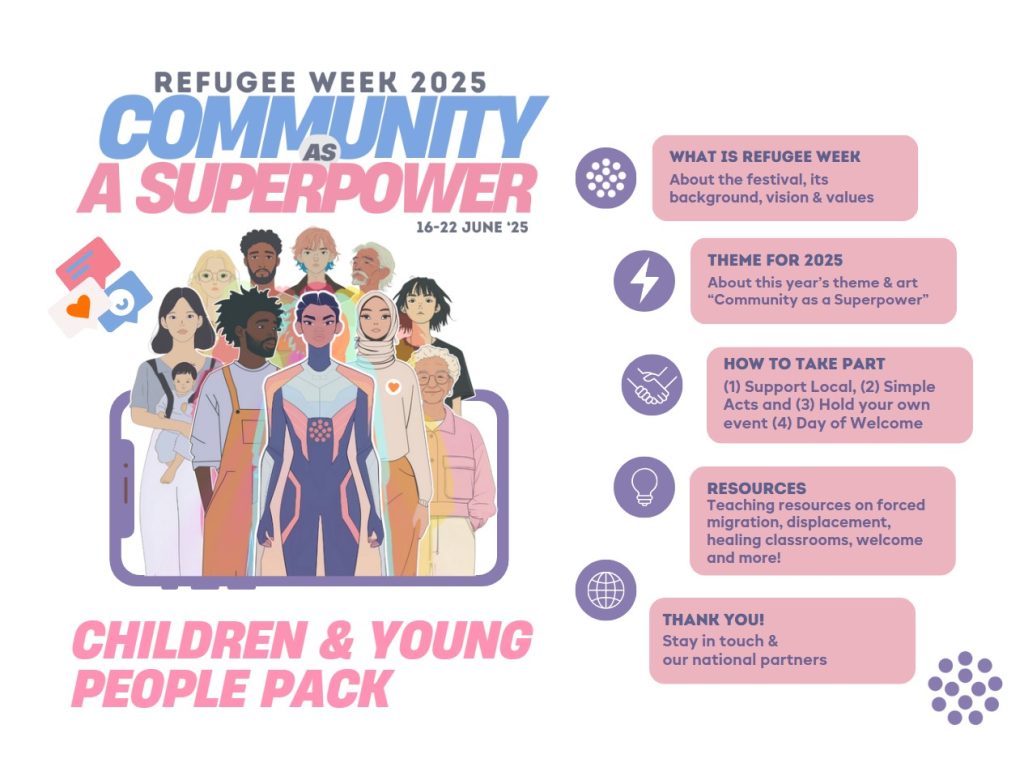
Visit the Refugee Week website to download this year’s Children & Young People’s Pack. It contains a range of activity ideas and resources to explore at school.
10 books about war
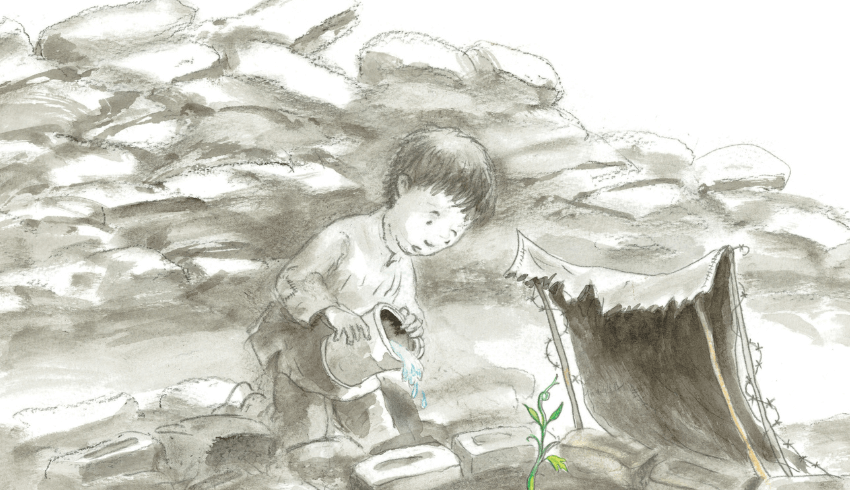
Books about war are invaluable in helping children explore and consider difficult subjects from within a safe space. Here, freelance writer and creative consultant Carey Fluker Hunt recommends ten of the best for primary.
British Red Cross resources
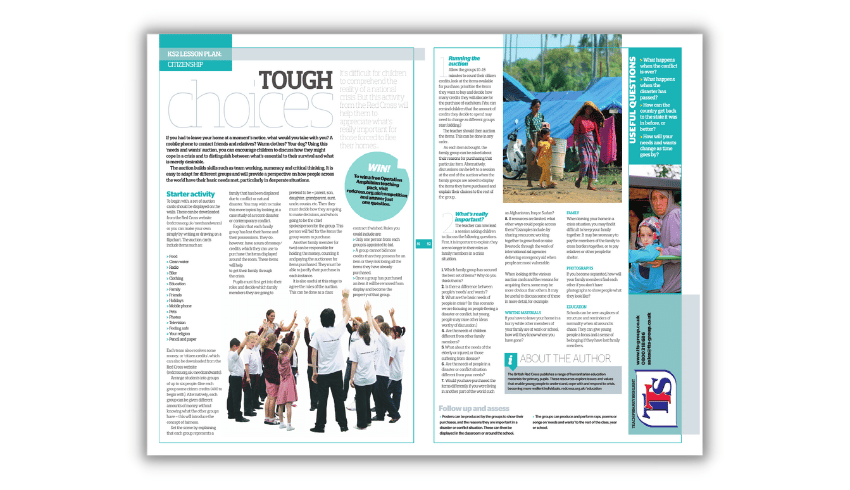
This free KS2 lesson plan activity from the Red Cross will help children explore what’s really important for those forced to flee their homes. Pupils will discuss how they might cope in a crisis and explore the differences between wants and needs.
I Am Human is a video designed to create empathy, and show how language can enforce and encourage negative views and stigma towards refugees and asylum seekers. There are also a variety of activities and discussion points to accompany the video.
The Boy at the Back of the Class planning
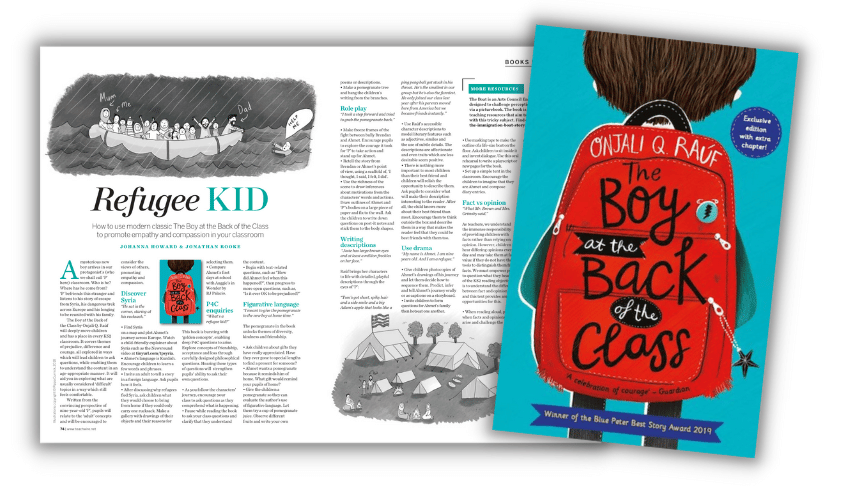
The Boy at the Back of the Class is the perfect book to study during Refugee Week and will help you promote empathy and compassion in your KS2 classroom. Download our free PDF of activity ideas to help you get the most out of the book.
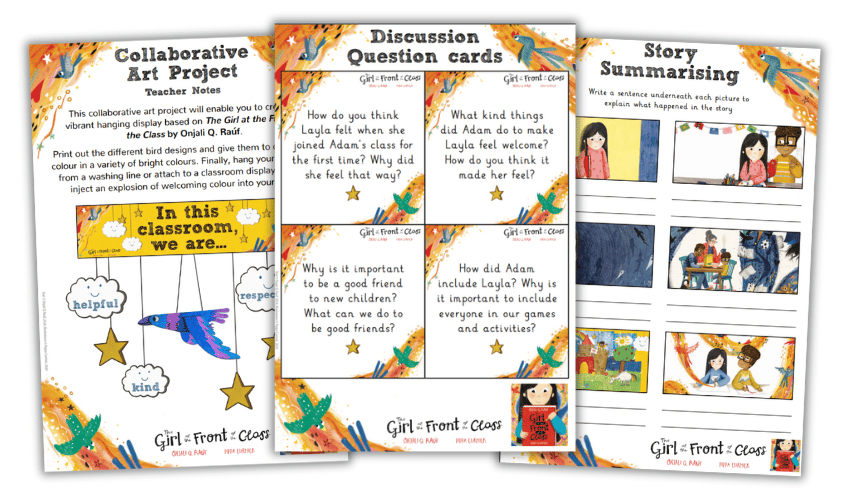
We also have resources for The Girl at the Front of the Class. This sister title to The Boy at the Back of the Class helps young children understand and empathise with the refugee experience.
The Boat story and resources
The Boat is an Arts Council England funded project designed to challenge perceptions of immigration via a picturebook. The book is accompanied by free teaching resources that aim to engage children with this tricky subject.
Use comic books in KS3/4 to discuss refugees
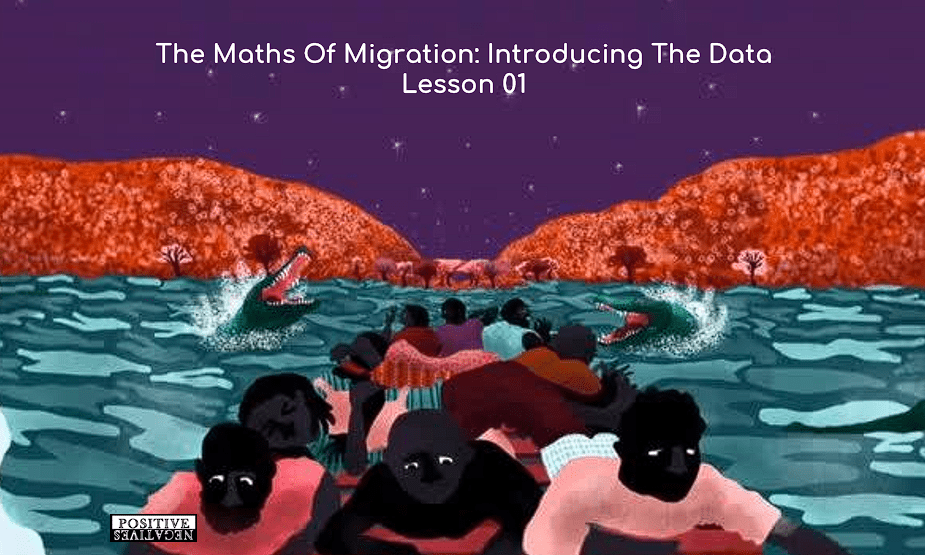
This ‘Maths of Migration’ resource features an animation called ‘North Star Fading’, which is based on the story of four Eritrean refugees. It also contains data on over 500 refugees and migrants who arrived in Europe during 2015.
In the sessions, pupils will create and answer their own questions, presenting their findings through infographic posters.
Read more about the resources and how Oaklands School students used them, then download them to use in your classroom.
“By focusing on particular aspects of the data, our students revealed many different stories”
Into Film Refugee Week resources
This resource from Into Film lets teachers use film as a stimulus to discuss the hardships and resilience of refugees around the globe and contains a guide to five movies which have been specially selected to be accessible to learners within the 5-19 age range (as well as a list of other recommended films):
- An American Tail
- Casablanca
- Monsieur Lazhar
- The Kite Runner
- The Terminal
The guides include discussion questions and activity ideas to encourage learners to ask and answer questions and reflect on why people seek sanctuary in other countries.
Oxfam – We’re not so different
This film was part of Oxfam’s ‘Stand as One’ campaign which asked the public to stand in solidarity with people forced to flee.
It comes with creative resources for Key Stage 2 and 3 to get students to think about our similarities and what we all need to have a good life. Use it to encourage children to feel empathy with refugees by imagining what it would be like to leave everything behind.
Traces Project

It can be difficult for some children to fully comprehend what immigrants can bring to a country. The excellent Traces Project website explores the contributions to arts and culture from people who have sought safety in the UK.
The homepage has a timeline of well-known and important refugees from Lucien Freud through to popstars like Rita Ora and MIA. But beyond that you’ll want to check out the fantastic learning activities.
Amnesty International Refugee Week resources
Amnesty International has a range of great resources for you to explore. There’s a Seeking Safety activity pack for primary children and a one-hour Time to Flee lesson plan for secondary pupils.
Best books for teaching and learning about refugees
Everybody’s Welcome
Patricia Hegarty (3-5 years)
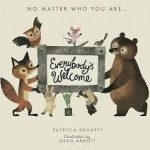
This gentle and empowering story is about a little mouse who dreams of building a ‘great big happy house’ in the forest. He achieves his goal with the help of a succession of animals who are themselves in need of assistance.
It was commissioned by Thomas Truong, publisher of Caterpillar Books. He is the son of a refugee and a European migrant, following the results of the Brexit referendum.
Its message is simple: if we are all kind and welcoming then together, we can create a home where everyone can be safe and joyful.
The Colour of Home
Mary Hoffman and Karin Littlewood (6-9 years)
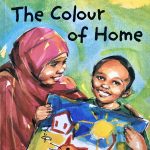
Hassan feels out of place in a new cold, grey country. At school, he paints a picture showing his colourful Somalian home. It’s covered with the harsh colours of war from which his family has fled.
He tells his teacher about their voyage from Mogadishu to Mombasa, then to the refugee camp and on to England. But gradually things change. When Hassan’s parents put up his next picture on the wall, Hassan notices the maroon prayer mat, a bright green cushion and his sister Naima’s pink dress – the new colours of home.
My Name Was Hussein
Hristo Kyuchukov (5-9 years)
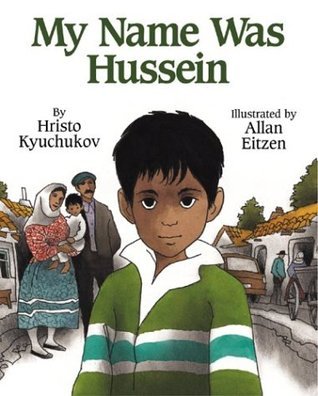
This picturebook tells the story of a young boy called Hussein as a group of soldiers take over his small Bulgarian village.
As the rights of all Muslims living there are taken away, Hussein is forced to change his name. His family’s way of life is forcibly changed too. They are no longer allowed to go out at night or go to the mosque.
Illegal
Eoin Colfer and Andrew Donkin (7-11 years)
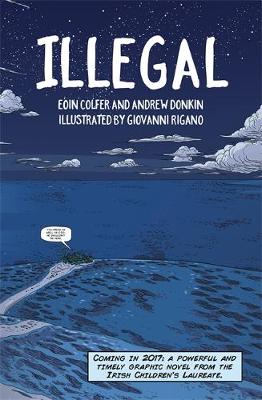
This graphic novel begins with a quote about illegal aliens from Holocaust survivor Elie Wiesel. It’s from the team behind the Artemis Fowl comics and will help you to start a discussion on the migrant crisis in an accessible way.
The story follows 12-year-old Ebo. He’s making the treacherous journey from Africa to Europe across the Sahara desert and Mediterranean Sea.
The book cleverly alternates settings every chapter. We lurch between Ebo and brother Kwame’s panic-stricken sea crossing and the journey that brought them there.
Colfer and Donkin deliver a sucker-punch towards the end of the book. Children will need some time to absorb this, but the focus on relatable Ebo is an excellent entry point into this sensitive topic.
At the end of the book there is a map of Ebo’s journey. There’s also a cartoon strip telling a real-life refugee’s story that is similar to Ebo’s.
A Story Like the Wind
Gill Lewis (7-11 years)
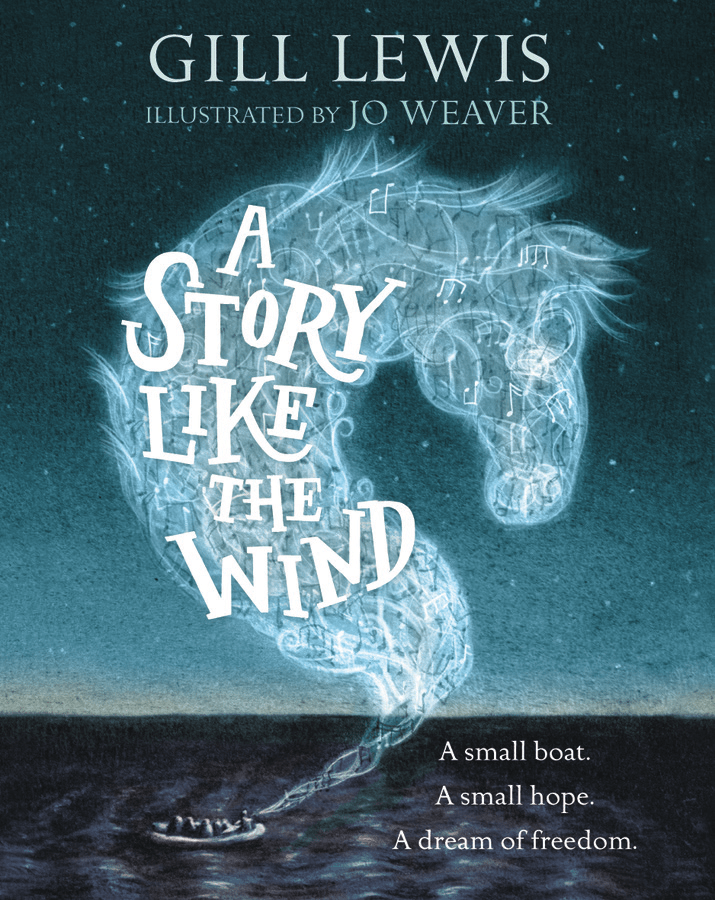
This moving, atmospheric story is outstanding. Gill Lewis’s flowing prose tells the story of Rami. Marooned on a small boat with a group of strangers, Rami refuses all offers of help and support.
He has nothing to offer in return except a violin and an ancient story – a song of freedom and a story like the wind.
Rami tells the fellow travellers around him the tale of Suke and his fight to save a wild foal. His moving fable prompts the other strangers to share their own stories. There are tales of first kisses, fragrant lemon trees, of hopes, dreams and their families.
This book is a celebration of determination, love and hope. It is about the mindless devastation of war and the power of music to unite.
Jo Weaver’s blue and white charcoal illustrations are stunning and evoke beautifully the swirling sea and silent night sky.
Looking at the Stars
Jo Cotterill (7-11 years)
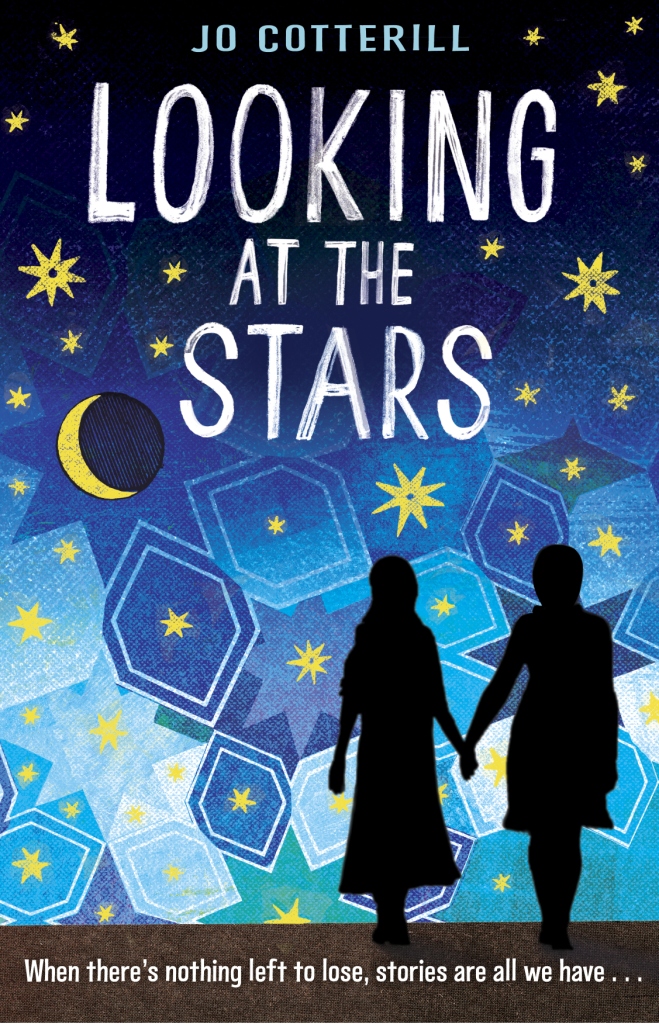
Utterly believable from the opening paragraph to its heartbreaking yet hopeful conclusion, this is a powerful tale that celebrates human resilience in the face of human cruelty, confusion and conflict.
It’s set in an unnamed country that is simultaneously horribly familiar and yet distinctly new. It follows the experiences of Amina. She’s a young girl who is forced to leave her home town with her sisters and her mother.
She flees to a refugee camp, after the arrival of a ‘liberating force’ proves to be far from the signal of freedom for which her community had been hoping.
As life becomes increasingly, unthinkably tougher, Amina sustains herself and her family by drawing on her imagination. She tells stories inspired by the night sky that enable all of them to picture a possible future.
Cotterill’s writing is sure, confident and moving without excess sentimentality. This allows her characters, and the circumstances in which they find themselves, to speak for themselves in a way that crosses cultural and geographical boundaries with ease.
The Children of Willesden Lane
Mona Golabek & Lee Cohen (7-11 years)
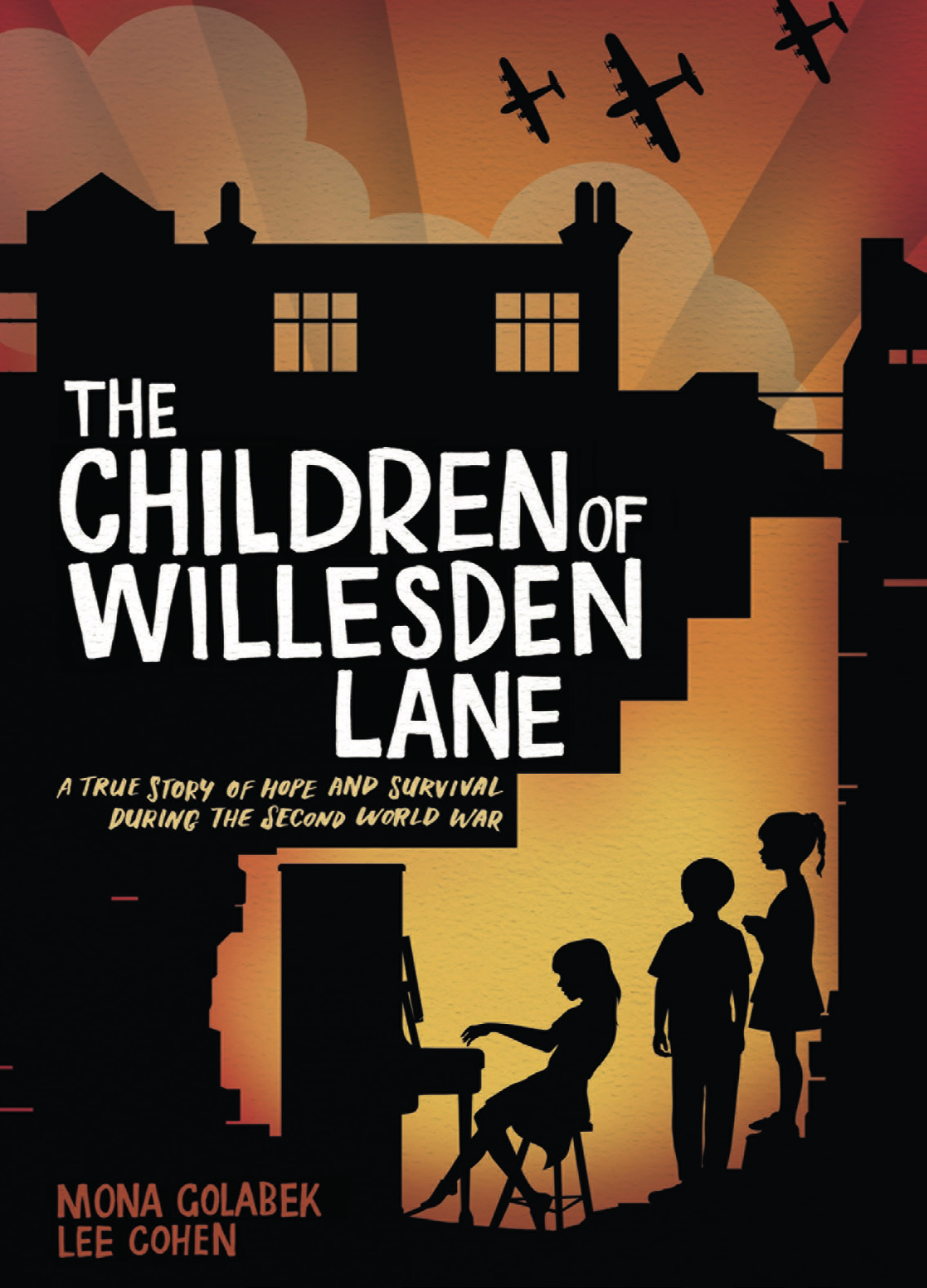
There’s no doubt that the Holocaust is a challenging period of history to broach, especially in primary school.
The Holocaust Educational Trust suggests that focusing on the experiences of Jewish child refugees is an age-appropriate way to teach the topic.
Beginning in Vienna in 1938, this book tells the true story of 14-year-old musical prodigy Lisa’s escape from Nazi-controlled Austria via the Kindertransport. It covers her experience of living in a home for refugee children in London.
Lisa’s daughter Mona Golabek, a Grammy-nominated recording artist, has co-written the story with journalist Lee Cohen. The book focuses on themes of courage, survival and the power of music. It will both educate and inspire young readers.
Find free KS2 schemes of work to accompany the themes of the book on the trust’s website.
Jackdaw Summer
David Almond (7-11 years)
Every summer Liam and Max roam the wild countryside of Northumberland – but this year things are different.
One hot summer’s day a jackdaw leads the two boys into an ancient farm house. Here they find a baby, wrapped in a blanket. There’s a scribbled note pinned to it: PLESE LOOK AFTER HER RITE. THIS IS A CHILDE OF GOD.
And so begins Jackdaw Summer. A summer when friendships are tested; lines between good and bad are blurred. A summer that Liam will never forget…
The Bone Sparrow
Zana Fraillon (7-11 years)
Born in a refugee camp, all Subhi knows of the world is that he’s at least 19 fence diamonds high, the nice Jackets never stay long, and at night he dreams that the sea finds its way to his tent, bringing with it unusual treasures. And one day it brings him Jimmie.
Carrying a notebook that she’s unable to read and wearing a sparrow made out of bone around her neck – both talismans of her family’s past and the mother she’s lost – Jimmie strikes up an unlikely friendship with Subhi beyond the fence.
As he reads aloud the tale of how Jimmie’s family came to be, both children discover the importance of their own stories in writing their futures.
In the Sea there are Crocodiles
Fabio Geda (14+ years)
One night before putting him to bed, Enaiatollah’s mother tells him three things: don’t use drugs or weapons, don’t cheat, don’t steal.
The next day he wakes up to find she isn’t there. Ten-year-old Enaiatollah is left alone at the border of Pakistan to fend for himself.
In a book that takes a true story and shapes it into a beautiful piece of fiction, Italian novelist Fabio Geda describes Enaiatollah’s remarkable five-year journey from Afghanistan to Italy. Here he finally managed to claim political asylum aged 15.
His ordeal took him through Iran, Turkey and Greece. He worked on building sites in order to pay people-traffickers. He endured the physical misery of dangerous border crossings squeezed into the false bottoms of lorries and trekked across inhospitable mountains.
A series of almost implausible strokes of fortune enabled him to get to Turin. Here he finds help from an Italian family and meets Fabio Geda, with whom he becomes friends.
The result of their friendship is this unique book in which Enaiatollah’s engaging, moving voice is brilliantly captured by Geda’s subtly simple storytelling. In Geda’s hands, Enaiatollah’s journey becomes a universal story of stoicism in the face of fear.
Refugee Boy
Benjamin Zephaniah (11+ years)
Alem is on holiday with his father for a few days in London. He has never been out of Ethiopia before and is very excited.
They have a great few days together. One morning, when Alem wakes up in the bed and breakfast they are staying at, he discovers the unthinkable. His father has left him.
It is only when the owner of the bed and breakfast hands him a letter that Alem is given an explanation. Alem’s father admits that because of the political problems in Ethiopia both he and Alem’s mother felt Alem would be safer in London – even though it is breaking their hearts to do this.
Alem is now on his own, in the hands of the social services and the Refugee Council. He lives from letter to letter, waiting to hear from his father, and in particular about his mother, who has now gone missing.
Advice for supporting refugee students in school
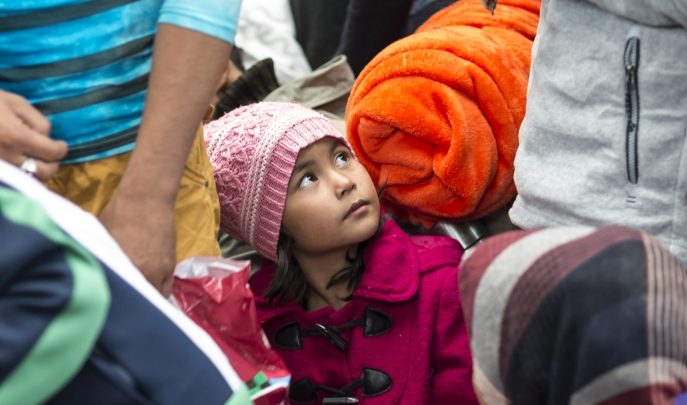
Home visits
Encourage staff who do home-school liaisons to build, where possible, a clear picture of children’s lives at home, what their experiences were in their homeland and on the journey here, and their educational history. This helps put behaviour and attainment in context.
Staff need to foster strong links with parents, creating a safe space in which they feel involved, welcomed, supported and included. The more you can get parents into school, the better.
“The more you can get parents into school, the better”
Welcome videos
You can also create a welcome video or book. Children can create a storyboard template, filming different parts of the school, interviewing teachers and talking about things like extra-curricular activities, lunchtimes, uniform, PE kit – everything someone new to England would need to know about the school.
Buddy systems
Peer-to-peer buddy initiatives work well – especially if you advertise volunteer positions like job roles and conduct interviews.
Anything that helps children to boost their English language skills is great, as are clubs which encourage children to celebrate their cultural heritage with others.
This builds self esteem and a strong positive identity, reminding children that they don’t need to assimilate to all things English to fit in.
While there may be other refugees at your school, perhaps from the same country, it’s generally best for a ‘buddy’ to be an established student with a good set of friends, so that all students can mix freely.
- Healing Classrooms: This free programme aims to support schools and educators to develop inclusive and nurturing learning spaces where refugee and asylum-seeking students can gain the necessary academic, social and emotional skills to develop their full potential.
- Toolkit for Migrant Parents and Practitioners: Academics at Middlesex University have developed this toolkit to help newly arrived migrant parents better understand the English school system.
- PACE: Developed by Dr Dan Hughes, this approach is well-suited to children who have experienced stress. The name stands for Playfulness, Acceptance, Curiosity and Empathy. The aim is to build trust and relationships which will lead to better outcomes.
- Zones of Regulation: If you’re finding that your new students are presenting disruptive emotions, then this strategy can be used to help them categorise and understand how they’re feeling, ultimately leading to scaffolding supportive measures.
- Harvard University – Reliance: Getting children to draw or list both the challenges they face and their ways of coping as two sides of a see-saw can help them see which is more heavily weighted. You can then help them manage each side one by one.
Pronounciation of names
You may need to record some names phonetically, at first. I’ve found that many students choose to simplify their names, but this should always be their choice.
If in doubt, see if your English or MFL teachers can assist you with any pronunciation issues rather than the student themselves, as such enquiries may make them feel self-conscious.
Religion
Make sure you know not just which religion – if indeed any – they follow, but how they practice. We understand that the Catholic church and the CofE are different, so apply that same mindset to all other faiths.
As part of their settling in, ask the student to note down anything that might need to be facilitated for them for religious reasons, such as dietary requirements, adjustments to uniform or prayer spaces.
Orientation
See to it that maps of your school are clearly presented, and also easily available as digital versions that will allow admin staff to add notes in the student’s own language. There’s no point labelling the toilets in English only if their English is poor.
Equipment
Many will have arrived in this country with nothing. Make sure there’s a lead member of staff responsible for them, who can provide them with the necessary stationary, uniform items and so forth.
Use picture labels
Take a walk around your school. Is there any signage that could use a picture label? This is a fairly common practice in primary schools designed to help pupils with emerging English skills, and it can be applied here.
Note that it can be especially useful in lessons where specialised equipment will be used, such as art and science.
Help them make links
Make space in the day for any refugees from the same country to meet. They may be in different year groups, but just having a chance to talk in your own language to someone else about experiences common to both of you can be an important source of relief.
As new refugees join your school, make sure they’re linked in with others already attending. This activity should be discrete from the school timetable – i.e. taking place at lunchtimes or at after-school clubs.
This is because it’s important that they’re able to become part of the wider school for the majority of the day.
Say ‘hello’ their way
Encourage a basic use of the student’s first language across the group, such as the words for ‘hello’ and ‘goodbye’.
This should be embedded and said without fanfare. Don’t draw attention to the fact, as it may embarrass the student or make them feel singled out. Just drop it in casually where you can.
Focus on strengths and achievements
Bear in mind that these students will be settling into a whole new way of learning. What areas or skills do they excel in? Make sure to celebrate and acknowledge these.
Share common experiences
While very few of us will have been forced to leave our homes with little or no warning, we can all relate to the idea of experiencing change we haven’t welcomed and what it’s like to endure times of stress.
Don’t be afraid to talk about this. Simple opening statements, such as ‘I don’t know what you’re experiencing or feeling, but I do remember when…’ are a good way of making an emotional connection without belittling their experiences, or comparing them to yours.
Celebrate what they bring to the school
As you get to know them, consider how you can incorporate their knowledge and experiences into your lessons.
Make the process of welcoming new people to your school part of its ethos and a core value. Explicitly communicate this to students, staff and parents, clarifying how refugees should be welcomed both in school and throughout the wider community. Make sure the school is setting the tone.
Pre-translate key vocabulary
Make sure you’ve prepared a glossary of key words with translations. Ask them to work on a number each week. They may need support staff to assist them – don’t expect them to be able to do it all alone.
Avoid idioms
Yes, they’ll be ‘in at the deep end’ at first, but phrases like that won’t translate. Keep it simple.
Communicate purpose and targets
Try doing this as simply and as clearly as possible, translating just a few key points. If the student can know why they’re being asked to complete a particular lesson activity, it will help with buy-in.
This is particularly true when the educational approaches you’re using are vastly different to what they might have experienced previously.
Web translator apps
There’s no shame in getting some help from an app. Download one and use it whenever all else fails.
Thank you to Nola Ellen and Hannah Day for these tips. Nola offers refugee awareness sessions for children and staff in schools. Hannah is head of visual arts, media and film at Herefordshire and Ludlow Sixth Form College.





